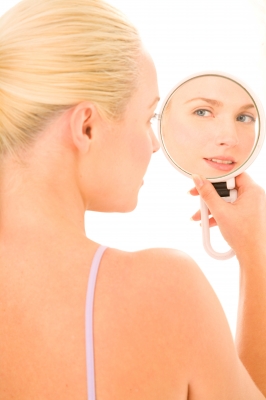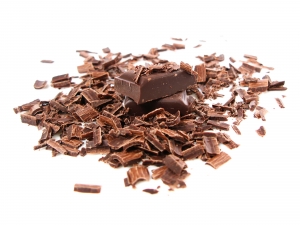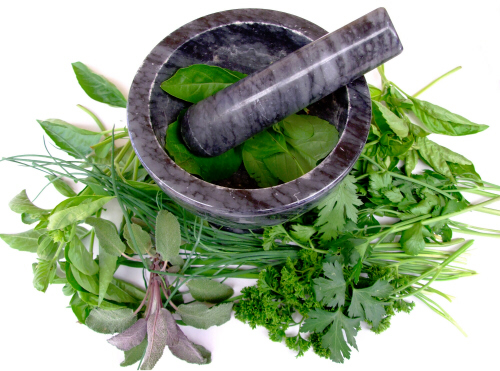Is my diet causing acne breakouts?
The phrase “you are what you eat” has both religious and dietary origins, dating back to as early as biblical times — Roman Catholics believe that the bread and wine of the Eucharist are changed into the body and blood of Jesus — or the 1800s when Anthelme Brillat-Savarin, French lawyer, politician, epicure and gastronome, wrote “Dis-moi ce que tu manges, je te dirai ce que tu es.” [Tell me what you eat and I will tell you what you are].
The common use of the phrase today holds that to be fit and healthy you need to eat good food.
 That notion certainly is true when it comes to common causes of skin inflammation and acne. Many individuals who do not consume a healthy diet or who have a diet lacking essential vitamins and minerals suffer from acne and other skin problems.
That notion certainly is true when it comes to common causes of skin inflammation and acne. Many individuals who do not consume a healthy diet or who have a diet lacking essential vitamins and minerals suffer from acne and other skin problems.
Common sense tells us that our bodies must be healthy before our skin can be healthy. We should strive to eat a well balanced diet, consume plentiful water, reduce our consumption of trigger foods and alcohol, and live an active lifestyle in order to enjoy unblemished, smooth, and glowing skin.
If you are experiencing acne, your dermatologist may recommend medications, some of which may trigger other issues or interfere with other prescriptions. But an aesthetician may first recommend treating your body’s largest organ — the skin — by controlling the nutritional value of your current diet and by caring for your skin with skin care products and treatments designed for your skin type.
Our team of member estheticians and skin care experts collectively recommend the following guidelines:
Reduce or Eliminate Fats, Oils, and Sugars
Consuming a diet high in fats, oils, and sugars can wreck havoc on your skin. Many people experience blemishes after binging on junk food or institutional fast food, most of which is high in fat, sugar, carbohydrates, and oils. In order to stop break outs associated with eating this unhealthy food, and ill-health in general, try to reduce your consumption of unhealthy fats and refined sugars and replace them with healthier fats (olive oil and coconut oil) and natural sweeteners (fruit juice, agave and honey, for instance)
Don’t be Taken in by Myths
 Many individuals have heard and believe popular myths or are under the misconception that eating specific foods can contribute to or worsen acne. The most frequently blamed culprit is chocolate. In fact, no one specific type of food — including chocolate — has been proven to cause or worsen acne. In fact, many believe dark chocolate has antioxidant properties which are actually good for the skin.
Many individuals have heard and believe popular myths or are under the misconception that eating specific foods can contribute to or worsen acne. The most frequently blamed culprit is chocolate. In fact, no one specific type of food — including chocolate — has been proven to cause or worsen acne. In fact, many believe dark chocolate has antioxidant properties which are actually good for the skin.
The issue is one of quality. Chocolate from the candy aisle of your grocer is mostly refined sugar and fats, which is real culprit in poor skin. Good quality chocolate with at least 70 percent cocoa content can be beneficial because the flavonoid found in chocolate contains antioxidants which help your skin protect itself from UV damage (which means fewer wrinkles) and increases blood flow (which gives you a fresh glow).
 Hydrate
Hydrate
“Drink more water” shows up on just about every “tip list” for fitness, weight loss, and beauty. It’s important and it belongs on each of them. Why do we get so bored with such a vital substance? We can’t live without it, and yet we ignore it or use substitutes like soda and beverages, until we have a problem.
Well-hydrated skin is fresh and glowing, whereas not drinking enough water leaves your skin dull, ashy, flaky, itchy, and excessively dry.
Consider Supplements
Many individuals on a restricted diet, whether by habit or with cause, are not getting the daily recommended dose of vitamins or minerals. We think of vitamins as feeding our insides, but they feed the skin as well. Consult with a health care provider or nutritionist about interactions with any medications you are taking, and, the effects of combining certain minerals and vitamins (some do not go together, like Calcium and Iron). When you do find the proper supplement, check that it includes Vitamin E, which is beneficial for skin.
Try Natural Remedies
Mother Nature is a pharmacy and there are many topical treatments you can add to your skin for the temporary relief of inflammation of acne, skin irritation, dry skin and other conditions. Natural remedies are particularly useful for those who have allergies to common ingredients in prescription or over the counter remedies. Papaya is full of enzymes, yogurt and milk have lactic acid, tea has tannins and all of these things can be combined to make your skin dewy and tight for just pennies.
Consult with an Esthetician
Medical Spas are not just for Botox or plastic surgery consults and day spas are not just for a massage and pedicure. Medical spa providers have licensed estheticians on staff who are skilled at treating acne and similar conditions, and can recommend supplements, a cleansing regimen, and both professional or over the counter products to handle various skin conditions, all in concert with the proper facial for your skin type. Regular facials are a good investment for skin health — as well as a pleasant way to spend an hour.
While there are many medical conditions which will cause or worsen acne, by following these guidelines for healthy skin, you can maintain a healthy appearance hopefully free of the types of blemishes caused by poor diet and hydration. By eating a proper diet and hydrating, you will give your skin its best chance to be as healthy as possible.

